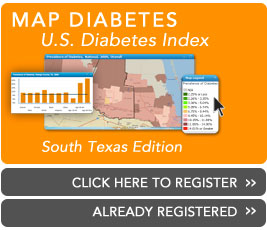Posted by Staff
Clinical Trials
Thursday, August 7th, 2014
Diabetes Care July 21, 2014
OBJECTIVE Blood pressure (BP) control for renal protection is essential for patients with type 2 diabetes. Our objective in this analysis of Veterans Affairs Diabetes Trial (VADT) data was to learn whether on-study systolic BP (SBP), diastolic BP (DBP), and pulse pressure (PP) affected renal outcomes measured as albumin-to-creatinine ratio (ACR) and estimated glomerular filtration rate (eGFR).
RESEARCH DESIGN AND METHODS The VADT was a prospective, randomized study of 1,791 veterans with type 2 diabetes to determine whether intensive glucose control prevented major cardiovascular events. In this post hoc study, time-varying covariate survival analyses and hazard ratios (HR) were used to determine worsening of renal outcomes. Read More
Posted by Staff
Clinical Trials
Thursday, August 7th, 2014
Diabetes Care July 21, 2014
OBJECTIVE To evaluate weekly subcutaneous albiglutide versus daily sitagliptin in renally impaired patients with type 2 diabetes and inadequately controlled glycemia on a regimen of diet and exercise and/or oral antihyperglycemic medications.
RESEARCH DESIGN AND METHODS In this Phase III, randomized, double-blind, multicenter, 52-week study, the primary study end point was HbA1c change from baseline at week 26 in patients with renal impairment, as assessed with estimated glomerular filtration rate and categorized as mild, moderate, or severe (≥60 to ≤89, ≥30 to ≤59, and ≥15 to ≤29 mL/min/1.73 m2, respectively). Secondary end points included fasting plasma glucose (FPG), weight, achievement of treatment targets, hyperglycemic rescue, and safety. Read More
Posted by Staff
Clinical Trials
Thursday, August 7th, 2014
The Lancet Diabetes & Endocrinology, Early Online Publication, 18 July 2014
Background
Intensive diabetes treatment reduces the risk of developing albuminuria in individuals with type 1 diabetes. Effects on the long-term clinical course of kidney disease remain to be defined. We aimed to compare the long-term effects of intensive versus conventional treatment on incident albuminuria.
Methods
For this long-term follow-up study of the Diabetes Control and Complications Trial (DCCT) we assessed the effect of intensive diabetes treatment on albuminuria during 18 years after the completion of the trial. During the DCCT (1983—1993), 1441 participants with type 1 diabetes were randomly assigned to receive either intensive treatment (with the goal of achieving levels of glycaemia as close to the non-diabetic range as safely possible) or conventional treatment (aimed at prevention of symptoms of hyperglycaemia and hypoglycaemia).
Read more
Posted by Staff
Clinical Trials
Thursday, August 7th, 2014
The Diabetes Educator: June 20, 2014
Purpose The purpose of this pilot study was to examine the feasibility and preliminary efficacy of an age-specific diabetes prevention program in young adults with prediabetes.
Methods A one-group pretest-posttest design was used. The inclusion criteria were age 18 to 29 years and the presence of prediabetes (either impaired fasting glucose of 100-125 mg/dL [5.55-6.94 mmol/L] or A1C of 5.7%-6.4%). Fifteen participants were enrolled in the study. A technology-based lifestyle coaching program focused on diet and physical activity and incorporating a handheld device and digital platforms was developed and tested. Psychosocial factors (health literacy, illness perception, self-efficacy, therapeutic efficacy) based on social cognitive theory, changes in diet and physical activity, and cardiometabolic risk factors were assessed at baseline and week 12 after the intervention. A paired-samples t test was performed to examine changes between baseline and postintervention on each psychosocial and physical variable. Read More
Posted by Staff
Clinical Trial News, Clinical Trials
Monday, June 9th, 2014
Diabetes Care May 8, 2014
OBJECTIVE Insulin degludec/insulin aspart (IDegAsp) is the first combination of a basal insulin with an ultralong duration of action, and a rapid-acting insulin in a single injection. This trial compared IDegAsp with biphasic insulin aspart 30 (BIAsp 30) in adults with type 2 diabetes inadequately controlled with once- or twice-daily (OD or BID) pre- or self-mixed insulin with or without oral antidiabetic drugs. Read More
Posted by Staff
Clinical Trial News, Clinical Trials
Monday, June 9th, 2014
Diabetes Care April 23, 2014
OBJECTIVE To test whether a weight loss program promotes greater weight loss, glycemic control, and improved cardiovascular disease risk factors compared with control conditions and whether there is a differential response to higher versus lower carbohydrate intake.
RESEARCH DESIGN AND METHODS This randomized controlled trial at two university medical centers enrolled 227 overweight or obese adults with type 2 diabetes and assigned them to parallel in-person diet and exercise counseling, with prepackaged foods in a planned menu during the initial phase, or to usual care (UC; two weight loss counseling sessions and monthly contacts). Read More



























